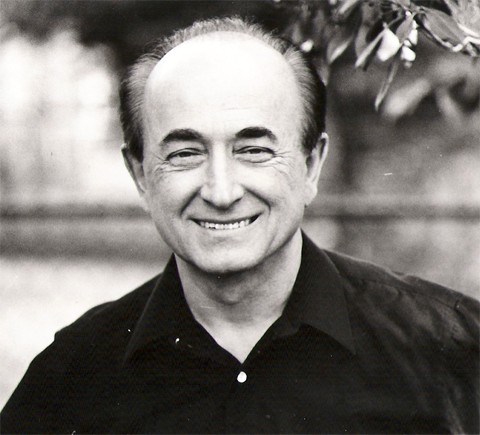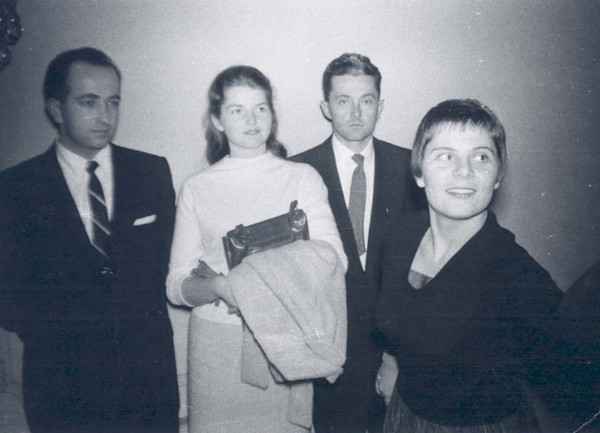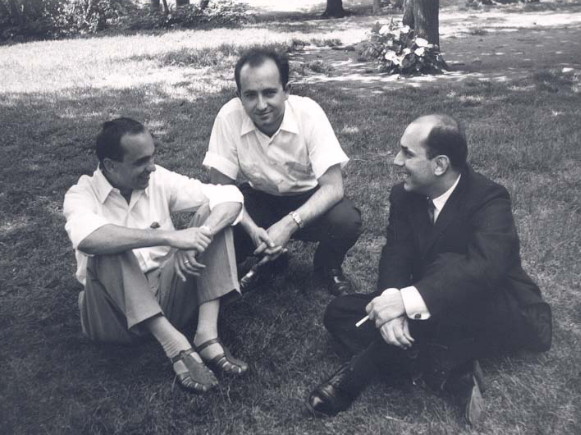Tarnawsky, Yuriy
Tarnawsky, Yuriy or George [Тарнавський, Юрій; Tarnavs'kyj, Jurij; pseudonyms: Romulius, Yu. T.], b 3 February 1934 in Turka, Sambir county, Galicia. Linguist, poet, novelist, and translator. Tarnawsky was displaced by the Second World War, and grew up in a displaced persons camp in Neu Ulm, Germany. He emigrated to the United States in 1952 and completed a degree in electrical engineering at the Newark College of Engineering in New Jersey (1956) and then turned to linguistics, in which discipline he was awarded a PH D from New York University in 1982. He worked at IBM on automated language-translation projects and artificial intelligence and published a number of scientific papers on those subjects. He has also worked on developing a natural-language interface for the computer programming language PROLOG. Between 1993 and 1996 he taught Ukrainian literature at Columbia University in New York and was one of the coordinators of the Ukrainian studies program at the Harriman Institute at that university.
In his early poetry Tarnawsky was influenced by the French pre-Symbolists and Surrealists, as well as modern Spanish-language poets and by the philosophy of Existentialism. His linguistic studies and computer work have had a profound influence on him as a writer. In his poetry as well as in his prose he has eschewed the more usual embellished language and has sought the utmost semantic and syntactic directness, as if his creations were to enter into a one-to-one computerized relationship between word and meaning. Tarnawsky is unique in his expression, and his poems reflect well the mechanized and dehumanized contemporary world. He began writing in the early 1950s and has published several collections of verse: Zhyttia v misti (Life in the City, 1956), Popoludni v Pokipsi (Afternoons in Poughkeepsie, 1960), Idealizovana biohrafiia (Idealized Biography, 1964), Spomyny (Memories, 1964), and Bez Espaniï (Without Spain, 1969); a collection encompassing all of the aforementioned and some new cycles and representing volume one of his collected poems, Poeziï pro nishcho i inshi poeziï na tsiu samu temu (Poems about Nothing and Other Poems on the Same Subject, 1970); and a bilingual English-Ukrainian collection, Os’, iak ia vyduzhuiu (This Is How I Get Well, 1976; published in the Polish translation in 2002 in Lublin). A collection of his poetry, Bez nichoho: Poeziï (Without Anything: Poems), appeared in Ukraine in 1991 and was followed by a long poem Ura na (1992). In 1999 volume two of his collected poetry entitled Їkh nema (They Do Not Exist) was published in Kyiv.
Tarnawsky’s Ukrainian-language prose was published in several book editions, including the novel Shliakhy (Roads, 1961), a book of selected prose works Ne znaiu (I Don’t Know, 2000), and a collection of short prose Korotki khvosty (Short Tails, 2006). He is also the author of English-language prose works, including the novels Meningitis (1978) and Three Blondes and Death (1993) as well as a collection of five mini-novels Like Blood in Water (2007). A book of Tarnawsky’s dramas 6x0 was published in Kyiv in 1998.
Tarnawsky was one of the founding members of the New York Group of poets and the cofounder and editor of their periodic publication Novi poeziï (1959–71). He has translated from Spanish and English into Ukrainian (Federico García Lorca and Samuel Beckett) as well as from Ukrainian into English (Ukrainian Dumy, together with Patricia Warren in 1979). His literary criticism, published in various journals, concerns modern poetry, particularly poetic translations and bilingualism.
Marko Robert Stech, Danylo Husar Struk
[This article was updated in 2009.]



.jpg)